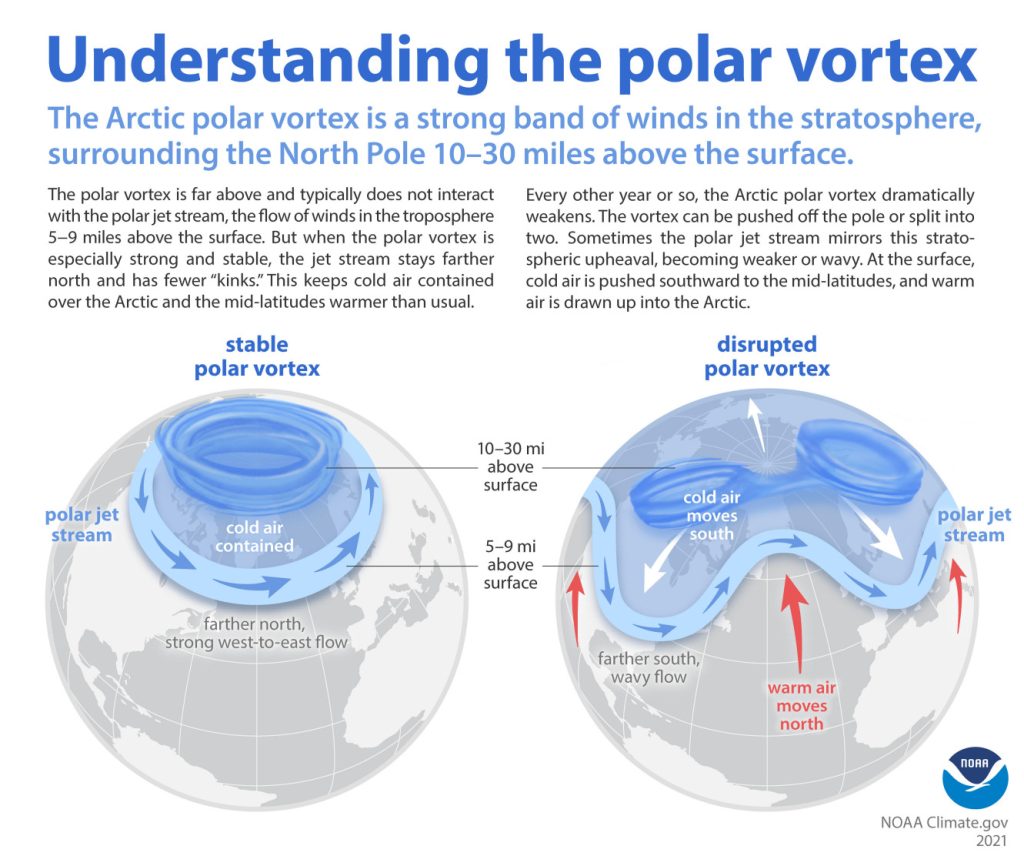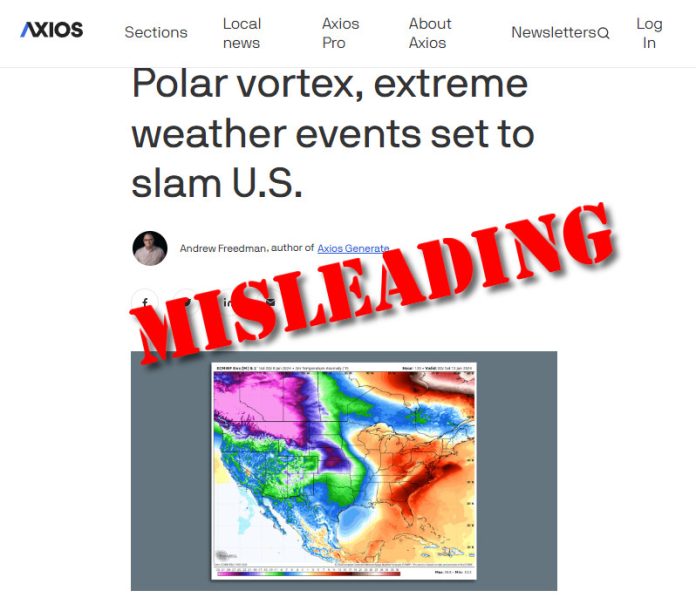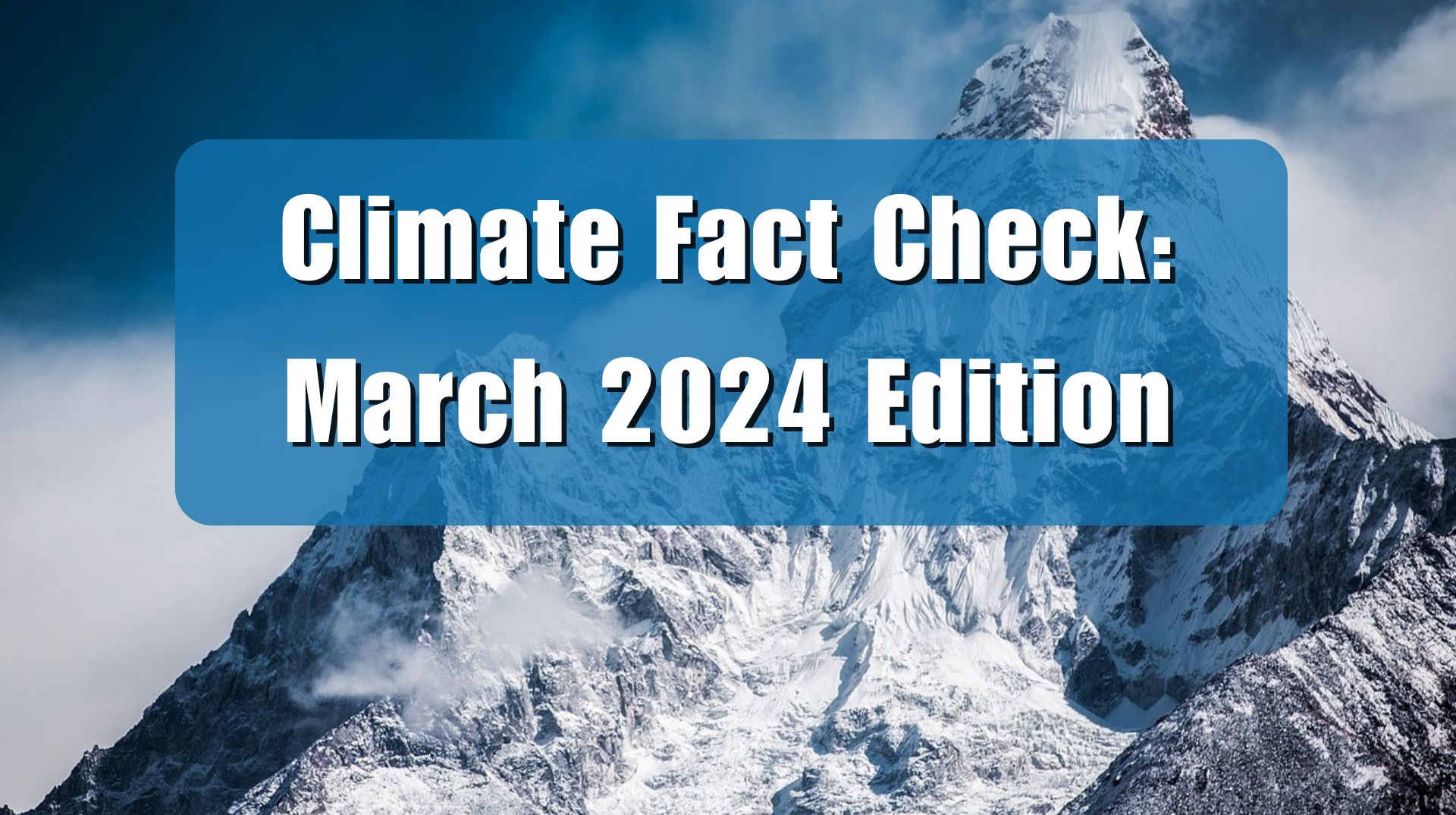Axios, an online news and opinion service, published an article, titled “Polar vortex, extreme weather events set to slam U.S.,” by Andrew Freedman, in which the writer claims that climate change is altering the polar vortex, making it more extreme and erratic. While there is some factual reporting in the piece about pending weather events, Freedman’s claim that climate change is altering the polar vortex is fact free.
“Some of the upcoming extremes have clear ties to climate change,” writes Freedman. “There are numerous studies that suggest polar vortex excursions may be becoming more likely in a warming world, but this is still an area of active research.”
Freedman’s assertions are false, unsupported by both current scientific publications and real-world data.
Below is a description of a polar vortex weather event:

The phrase “polar vortex” is a meteorological term for a weather event that has in recent years been erroneously linked by the mainstream media to climate change and severe winter weather events. The polar vortex was first identified as a cause for some instances of severe winter weather events in 1853 well before “human caused climate change” was ever conceived of. The term first appeared in an 1853 issue of E. Littell’s Living Age.
In fact, the National Oceanic and Atmospheric Administration (NOAA) in their definition of the phrase, has this to say:
There are several things the polar vortex is NOT. Polar vortexes are not something new. The term “polar vortex” has only recently been popularized, bringing attention to a weather feature that has always been present.
In other words, the media has co-opted the phrase in an effort to tie it “climate change” without any actual historical or scientific linkage.
As pointed out it Climate at a Glance: The Polar Vortex, NOAA also clearly disputes claims that polar vortex trends are worsening:
Recently, some climate researchers have cited computer models to attribute specific polar vortex events to climate change. However, there no evidence contained in the long-term observational records that polar vortex events have become more frequent or severe during the recent period of modest warming. In its discussion of the polar vortex, NOAA says computer models fail to produce consistent projections linking climate change and the polar vortex. “Computer models don’t agree on how global warming will affect the polar vortex,” reports NOAA.
NOAA goes on to say there has been “no clear trend” in polar vortex events since the 1990s. Further, the Intergovernmental Panel on Climate Change (IPCC) on page 90 – Chapter 12 of the UN IPCC Sixth Assessment Report. Emergence of Climate Impact Drivers (CIDs) in the section on “Snow and Ice” states that there is no evidence that climate change is affecting “heavy snowfall and ice storms” which are the signature weather events occurring during a polar vortex winter outbreak.
Claims such as Axios made, that climate change is creating new and more severe polar vortex events are not supported by observational evidence, computer models, NOAA, or the IPCC.
The Axios piece also goes on to say, “Climate change-related sea level rise is making storms such as this one more damaging, since only a relatively small surge is needed to yield flooding.”
This too is false. On page page 90 of Chapter 12 in the IPCC’s report, in the section titled “Coastal,” the IPCC writes that “Relative sea-level” and “Coastal flood” have not been linked to climate change at all.
The types of claims Freedman made in his Axios piece have been refuted time and again on Climate Realism, yet like a game of Whac-A-Mole, he and and other journalists keep publishing these false claims, without paying any attention to existing evidence and facts.
It is just another indication that the media is more interested in furthering the climate scare narrative than they are in being responsible journalists by pursuing and promoting the truth.

















Yep seems like it never ends the endless drivel of tying all severe weather related events to climate change! It’s like the hamster wheel that just keeps going around and around without really anything changing just like the climate having it’s own cycles! If you deny that the climate is changing you’re wrong but if you’re a climate disciple and accept all this nonsense you are right! Since data shows that climate hasn’t really changed much over time and that no one factor seems likely to alter it’s effects then it comes down to that it’s a relativistic sensibility phenomenon based on one’s own experiences and perception and nothing at all to do with the actual climate!